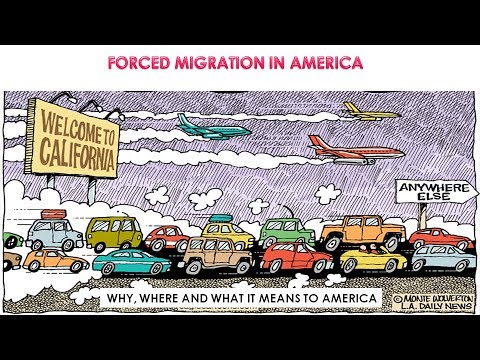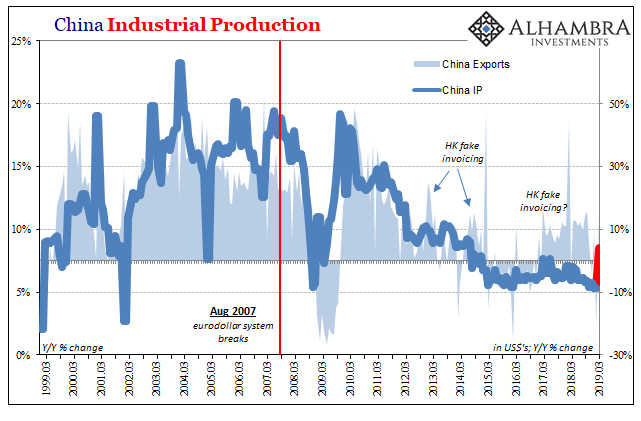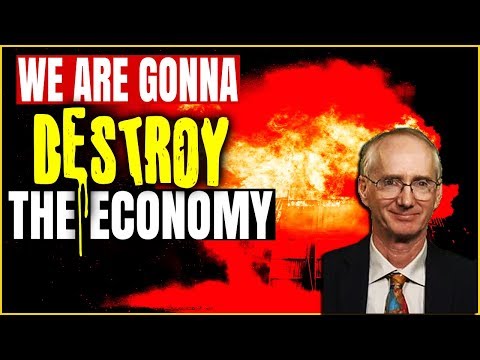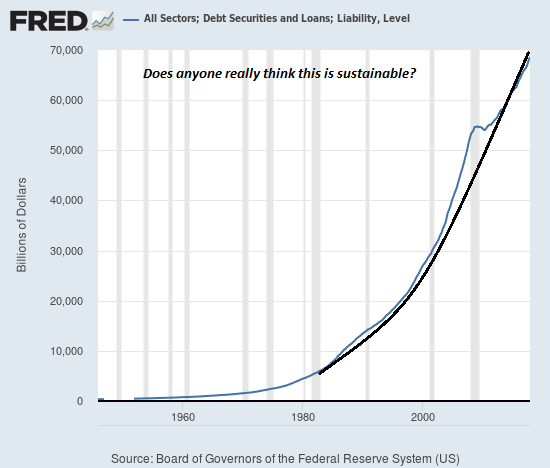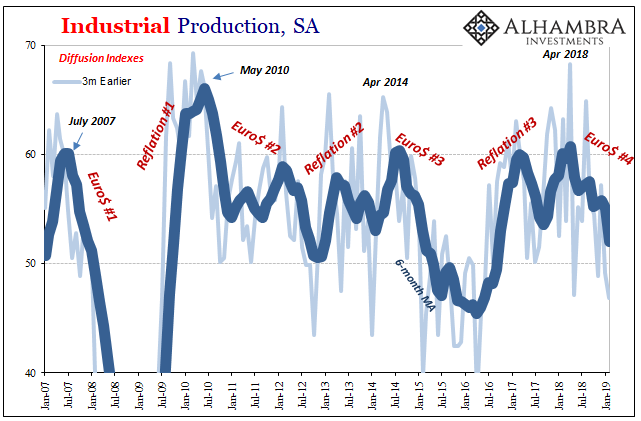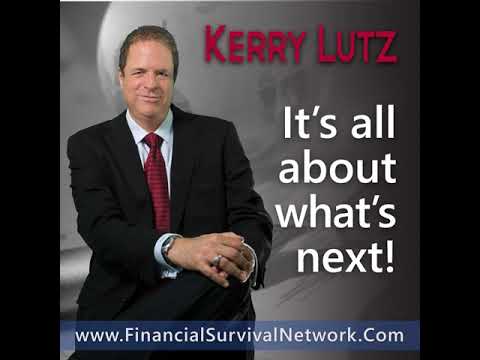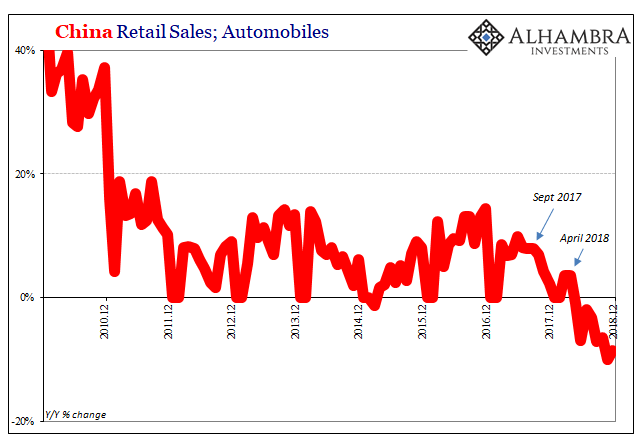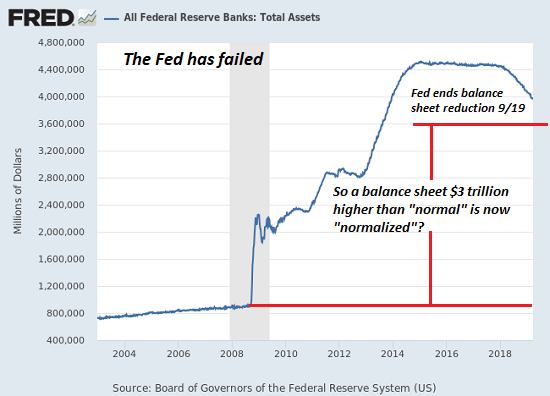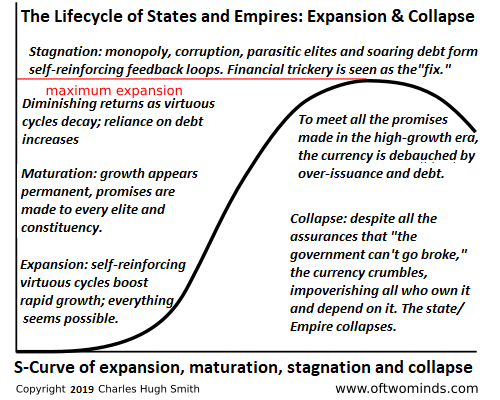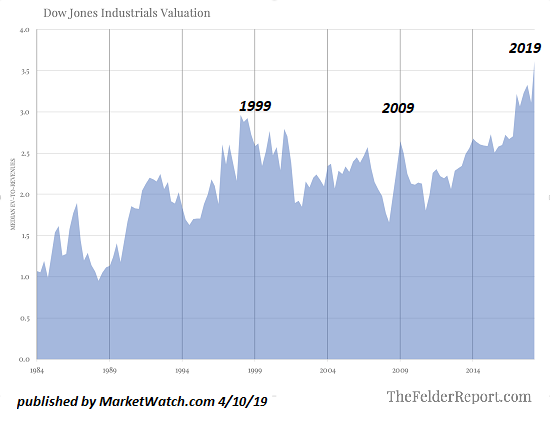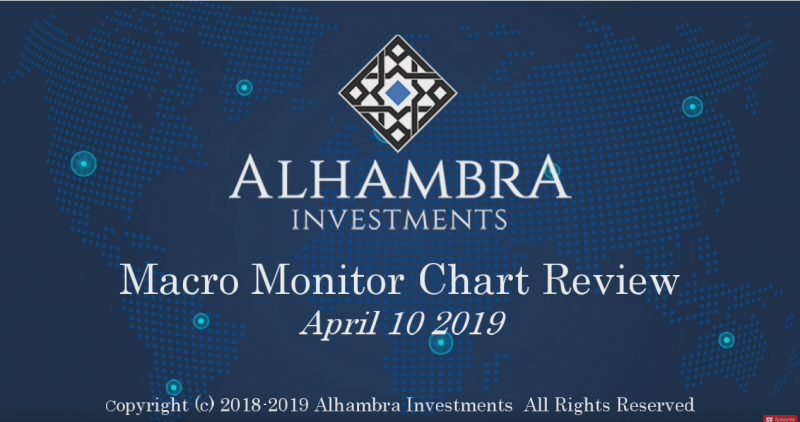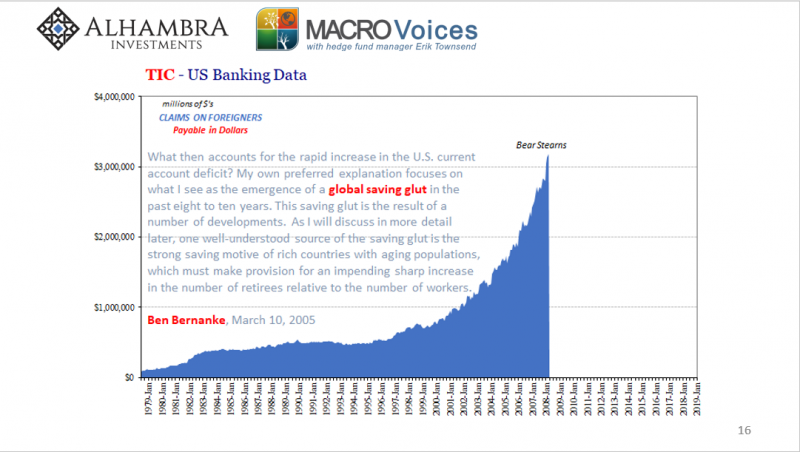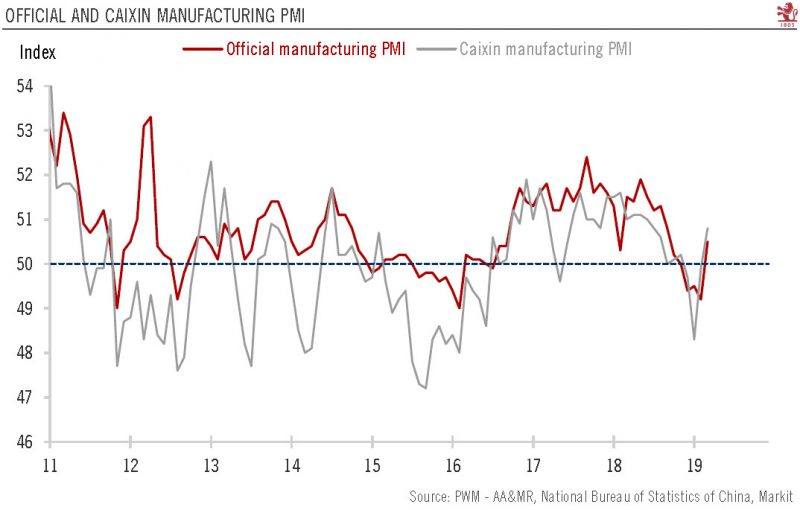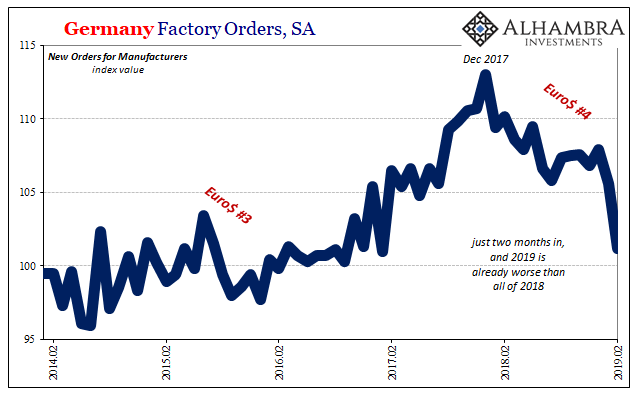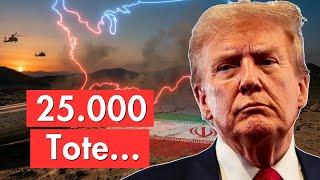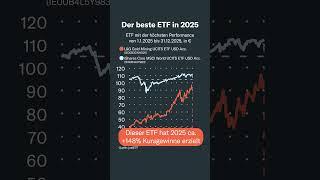Category Archive: 5) Global Macro

Jeff Snider: Eurodollar System Overview
Erik Townsend and Patrick Ceresna welcome Jeff Snider to MacroVoices. Erik and Jeff discuss the history of Eurodollar, Eurodollar as global reserve currency, and how the global economy and the global financial system depend on the Eurodollar system. They also discuss the breakdown of Eurodollar system, the Great Global Monetary Crisis and the effect the Eurodollar squeeze has on …
Read More »
Read More »
MACRO ANALYTICS – 04 18 19 – Forced Migration in America w/Charles Hugh Smith
VIDEO NOTIFICATION SIGN-UP: http://bit.ly/2y63PvX-Sign-Up VIDEO ABSTRACT: America’s Forced Financial Flight: Fleeing Unaffordable and Dysfunctional Cities April 22, 2019 — https://www.oftwominds.com/blogapr19/forced-flight4-19.html Thank you to all Macro Analytics/Gordon T Long YouTube followers. I will continue to add the following message to each video, which many have already seen to help all of those that haven’t learned of …...
Read More »
Read More »
China’s Blowout IP, Frugal Stimulus, and Sinking Capex
It had been 55 months, nearly five years since China’s vast and troubled industrial sector had seen growth better than 8%. Not since the first sparks of the rising dollar, Euro$ #3’s worst, had Industrial Production been better than that mark. What used to be a floor had seemingly become an unbreakable ceiling over this past half a decade. According to Chinese estimates, IP in March 2019 was 8.5% more than it was in March 2018. That was far more...
Read More »
Read More »
CHARLES HUGH SMITH – We Are Gonna Destroy The Economy If We Keep Going Like This
SUBSCRIBE for Latest on FINANCIAL CRISIS / OIL PRICE / PETROL/ GLOBAL ECONOMIC COLLAPSE / DOLLAR COLLAPSE / GOLD / SILVER / BITCOIN / ETHERIUM / CRYPTOCURRENCY / LITECOIN /FINANCIAL CRASH / GLOBAL RESET / NEW WORLD ORDER / ECONOMIC COLLAPSE / DAVOS 2018
Read More »
Read More »
The Next Financial Crisis Won’t Be Caused by Fraud: This Time Will Be Different
Financial crises come in two flavors: fraud and credit-valuation over-reach.Fraud-based financial crises may differ in particulars, but they share many traits: perverse incentives are institutionalized; the perverse incentives reward figuring out how to evade oversight via fraud, embezzlement, masking risk, etc. which are soon commoditized; regulations are gutted by insider-funded lobbying; regulators fail to do their job in hopes of getting...
Read More »
Read More »
Green Shoot or Domestic Stall?
According to revised figures, things were really looking up for US industry. For the month of April 2018, the Federal Reserve’s Diffusion Index (3-month) for Industrial Production hit 68.2. Like a lot of other sentiment indicators, this was the highest in so long it had to be something. For this particular index, it hadn’t seen better than 68 since way back in March 2010, back when the economy looked briefly like it might actually recover.
Read More »
Read More »
Round Table with Gordon T. Long & Charles Hugh Smith #4299
Financial experts Gordon T. Long and Charles Hugh Smith join FSN for a discussion on what went/is going wrong with the American Experiment. Obviously among the culprits, corrupt government, corporatization, financialization and inflation to name just a few. The solution is very straight forward and simple. Go back to localization, bring back the institutions that …
Read More »
Read More »
Who will be Britain’s next prime minister? | The Economist
The race is already on to replace Theresa May as Britain’s prime minister. Adrian Wooldridge, our political editor, assesses the chances of five leading Conservative politicians hoping to take the top job. To read more, click this link: https://econ.st/2GjzNYA Click here to subscribe to The Economist on YouTube: https://econ.st/2xvTKdy For more from Economist Films visit: …
Read More »
Read More »
Coloring One Green Shoot
China’s Passenger Car Association reported last week that retail sales of various vehicles totaled 1.78 million units in March 2019. The total was 12% less than the number of automobiles sold in March 2018. This matches the government’s data, both sets very clear as to when Chinese economic struggles accelerated: May 2018.
Read More »
Read More »
No Fix for Recession: Without a Financial Crisis, There’s No Central Bank Policy Fix
There are no extreme "fixes" to secular declines in sales, profits, employment, tax revenues and asset prices. The saying "never let a crisis go to waste" embodies several truths worth pondering as the stock market nears new highs. One truth is that extreme policies that would raise objections in typical times can be swept into law in the "we have to do something" panic of a crisis.
Read More »
Read More »
Assange and the Unforgivable Sin of Disemboweling Official Narratives
There is really only one unforgivable sin in the political realm, and that's destroying the official narrative by revealing the facts of the matter. This is why whistleblowers who make public the secret machinery of the elaborately artful lies underpinning all official narratives are hounded to the ends of the Earth.
Read More »
Read More »
Blind Faith vs. the Bottom Line
There is more than a little "let them eat brioche" in the blind faith that the masses' patience for pillage is infinite. We've reached an interesting moment in history where we each have a simple choice: we either go with blind faith or we go with the bottom line, i.e. the facts of the matter. So far, 2019 is the year of Blind Faith, as the charts below illustrate: the bottom line no longer matters.
Read More »
Read More »
Monthly Macro Chart Review – April 2019 (VIDEO)
Alhambra CEO Joe Calhoun discusses the charts from the past month and what they indicate.
Read More »
Read More »
Why 2011
The eurodollar era saw not one but two credit bubbles. The first has been studied to death, though almost always getting it wrong. The Great Financial Crisis has been laid at the doorstep of subprime, a bunch of greedy Wall Street bankers insufficiently regulated to have not known any better. That was just a symptom of the first. The housing bubble itself was more than housing.
Read More »
Read More »
Is private education good for society? | The Economist
Across the world private education is booming. Though private schools and tuition promote inequality, Emma Duncan, our social policy editor, explains why governments should embrace the private sector’s rise Read more here: https://econ.st/2X4ODsm Click here to subscribe to The Economist on YouTube: https://econ.st/2xvTKdy There is a big boom in private education all over the world. …
Read More »
Read More »
Here’s What It’s Like To Be a Bear in a Rigged Market
Central bankers and media handlers must be laughing at how easy it is to slaughter the Bears and doubters with another fake-news round of trade-deal rumors and another Fed parrot being prompted to repeat some dovish mumbo-jumbo. It's not just tough being a Bear in a market rigged by trade deal rumors, Federal Reserve dovishness, a tsunami of Chinese liquidity and $270 billion in stock buy-backs in the first quarter--it's impossible.
Read More »
Read More »
Trade Deal Follies: The U.S. Has Embraced the World’s Worst Negotiating Tactics
The world's worst negotiating strategy is to make a crazy tulip-bubble stock market rally dependent on a trade deal that harms the interests of the U.S. The world's worst negotiating tactics, the equivalent of handing the other side a loaded gun while waving a squirt gun around, are: 1. Declare a de facto political deadline for a deal. Constantly tweet that a deal is imminent.
Read More »
Read More »
Monthly Macro Chart Review: April 2019
The economic data reported over the last month managed to confirm both that the economy is slowing and that there seems little reason to fear recession at this point. The slowdown is mostly a manufacturing affair – and some of that is actually a fracking slowdown – but consumption has also slowed.
Read More »
Read More »
China PMIs jump in March
Industrial gauges rebound on seansonality as well as policy easing.Chinese PMI readings moved back into expansion territory in March. The official Chinese manufacturing PMI rose to 50.5, up from 49.2 in February, and beating the Bloomberg consensus of 49.6, while the Caixin manufacturing PMI came in at 50.8, also up from 49.9 in February and beating the consensus expectation of 50.0.
Read More »
Read More »
External Demand, Global Means Global
The Reserve Bank of India (RBI) cut its benchmark money rate for the second straight meeting. Reducing its repo rate by 25 bps, down to 6%, the central bank once gripped by political turmoil has certainly shifted gears. Former Governor Urjit Patel was essentially removed (he resigned) in December after feuding with the federal government over his perceived hawkish stance.
Read More »
Read More »










